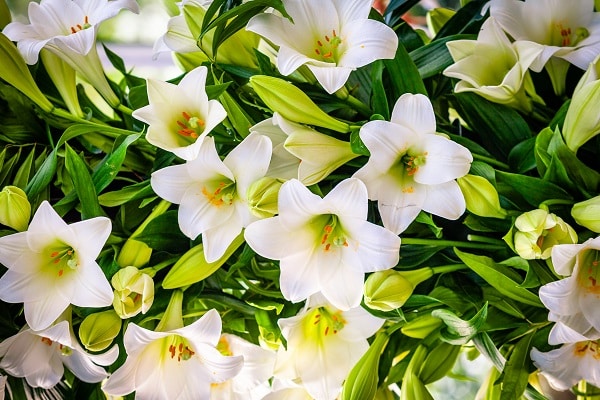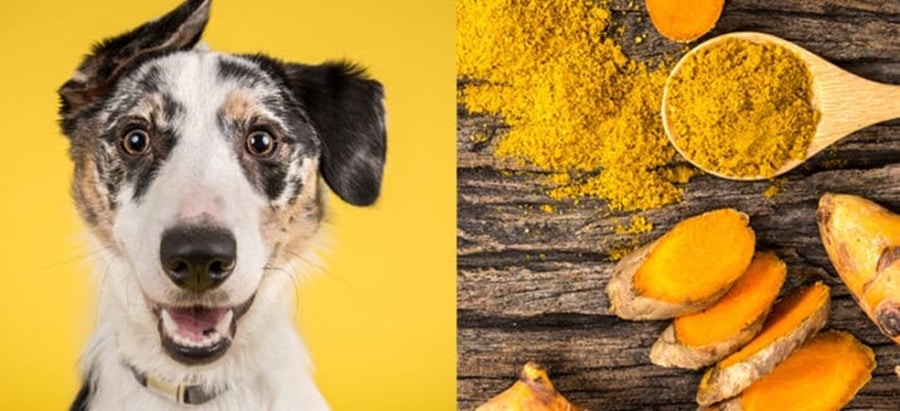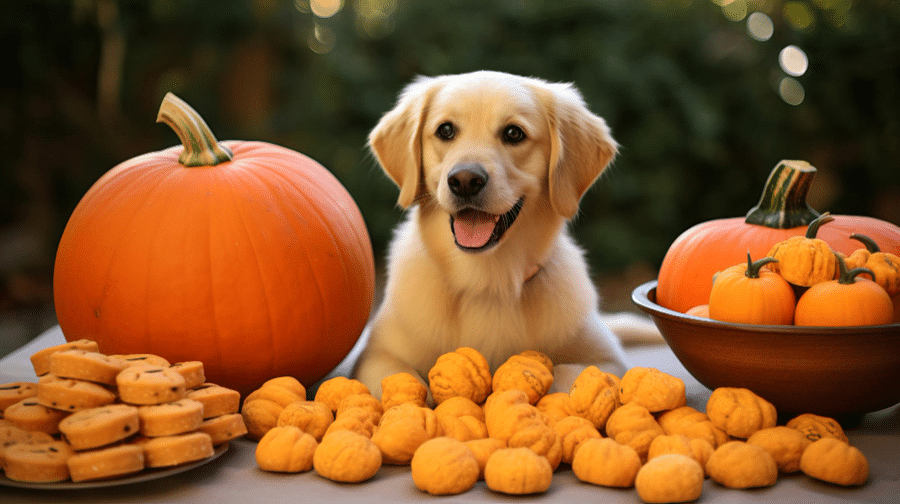With the cold weather here to stay for a while, odds are you will want to have more plants inside to bring some of the joys of summer into your home. But if you’re a dog owner, it’s essential to be aware of the plants that could cause potential harm to your furry friend. And while a majority of house plants are fine to keep around your pup, there are a few you should think twice about! In this article, you will learn about a few of the plants that aren’t safe for your dog!
Contents
Why Do Dogs Tend To Eat Houseplants?
Dogs are naturally curious creatures and tend to explore anything in their environment. Unfortunately, this curiosity sometimes leads them to discover how tasty houseplants can be! Different houseplants contain compounds that can be attractive to a dog’s olfactory senses. For example, ivy contains oxalic acid, which has a sweet odor; because of this, dogs may find it challenging to resist nibbling on the leaves.
Some types of foliage can also appeal to dogs due to their texture and chewiness. On top of that, if you have a dog with an obsessive chewing habit, it may be more likely to try and munch on your plants to satisfy the urge.
Tulips

While tulips are beautiful additions to any indoor garden, you should not choose them if you have a pet dog in your home. Dogs are naturally curious and often attracted to colorful objects, such as the vibrant blooms of a tulip flower. Unfortunately, these flowers pose a serious risk due to their high toxicity levels for dogs. If ingested, toxins from tulips can cause digestive issues, from vomiting and diarrhea to more severe reactions that require immediate medical attention.
In addition, the bulbs of the plant can present an even higher risk than the blooms themselves. Therefore, it is best to avoid these types of plants altogether on any property where a dog is present for their safety.
Philodendrons

Philodendrons can offer an exotic, easy-to-maintain look to any home and may even freshen the air with their natural neurotoxin-neutralizing powers. But unfortunately, philodendrons are not safe for your furry friends, both cats, and dogs. While many plants pose a significant danger to pets if ingested or chewed on, philodendrons require special attention due to their mysterious toxin makeup.
Philodendron’s toxic mix is more difficult for veterinarians to identify and treat than those of more well-known common plants; these toxins can cause stomach pain, vomiting, and other serious complications. As a result, dog owners should be particularly weary of this beautiful houseplant, as even just one nibble can lead to significant health concerns.
Aloe Vera

Although excellent for treating sunburns and general skin irritations in humans, aloe vera is not a good choice to have around your dog. However, suppose a pup does happen to consume any part of an aloe vera plant. In that case, it can cause gastrointestinal upset and general discomfort due to the plant’s saponins, which are soapy chemicals toxic to canines. This can make them vomit or have mild diarrhea – otherwise known as soft stool.
It may also irritate the throat, causing gagging and drooling in some cases. Other toxic substances in aloe vera include anthraquinone and aloin, which can cause diarrhea and abdominal pain. If you have a dog in your home, it’s best to avoid having this popular houseplant around to be safe.
Devil’s Ivy

Devil’s Ivy can be a very hazardous plant, but only a few people are aware of the risks associated with it. The most dangerous compound in Devil’s Ivy is calcium oxalate crystals that can cause intense irritation and burning in your pet’s mouth and even lead to organ failure if ingested. Other severe symptoms include excessive drooling, vomiting, and difficulty breathing.
Even when the plant material is not ingested, you must be careful; contact with the skin can cause itchiness due to severely inflammatory compounds found in the plant. You can avoid your pet’s suffering by eliminating any possibility of contact with this particular type of ivy or other poisonous plants around your house that could put their health at risk.
Lilies

Lilies, which are loved by many for their beautiful and mild fragrance, can be deadly to your beloved canine companion. These flowers contain toxins known as lycorine and paniculatin that are highly toxic if ingested by dogs, and the plant’s pollen can also irritate your pup’s skin. Even a tiny dose or mere exposure to the lily can cause serious symptomatic reactions such as vomiting, diarrhea, difficulty breathing, reduced heart rate, and even death.
Furthermore, lilies are not only toxic to dogs; they can also be dangerous to cats. So it’s important to keep these plants out of your home to ensure your pet’s safety.
Elephant Ear

Also known as caladium, elephant ear is a popular houseplant that can cause some serious harm to a curious puppy. Its leaves contain aconitic acid and calcium oxalate crystals, which are extremely dangerous if ingested by your dog. The ingestion of these compounds can lead to symptoms such as drooling, vomiting, diarrhea, seizures, or even organ failure in some cases.
On top of that, elephant ear plants are highly allergenic and can even cause skin irritation if your dog comes into contact with them. So if your pet encounters this plant, immediately seek medical attention and take extra care to thoroughly clean and disinfect the area.
Be Mindful Of The Plants That Aren’t Safe For Your Dog!
As much as it may be tempting to have these beautiful plants in your home, it’s important to be aware of their potential danger to your dog. Whether through ingestion or skin contact, your pet can have severe consequences if they come into contact with any part of these toxic plants. If you decide to bring any of them into your home, keep your dog away from them. Consult a veterinarian immediately if they show any signs of poisoning. Then, with proper care and vigilance, you can continue to enjoy the beauty of plants without facing any risks to your pets’ health.


